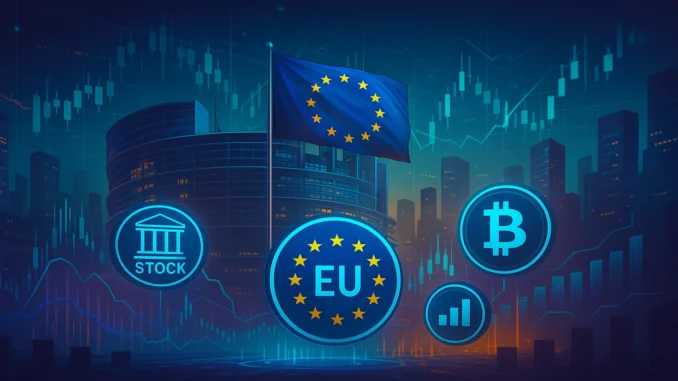
Europe Takes the Lead with MiCA
The European Parliament’s final approval of the Markets in Crypto Assets (MiCA) regulation has been hailed as a turning point for global crypto regulation. The move positions Europe as a leader in shaping the legal and operational landscape for digital assets.
Philipp Pieper, co-founder of the regulated DeFi platform Swarm, described the law as a “new beginning for crypto,” saying that “Europe, for a change, has just become the leading innovator in the industry.”
MiCA Brings Clarity and Confidence
The MiCA framework is the first of its kind among major economies, setting clear and unambiguous rules for crypto service providers. It introduces licensing requirements, consumer protection measures, and provisions for transparency and environmental accountability.
Pieper emphasized that this clarity will protect investors from company collapses and fraudulent practices. “Most importantly, crypto investors now have far more security and won’t be left holding the bag when companies collapse due to dodgy business practices,” he said.
A Boost for European Innovation
With MiCA in place, Europe is expected to attract more blockchain-based companies seeking regulatory stability. Pieper noted that the framework gives firms a “first-mover advantage” over regions like the United States, where regulatory uncertainty continues to slow innovation.
“Those with a clear framework within which to operate will march forward confidently, something that cannot be said for US-based counterparts,” Pieper added. Swarm, already regulated by Germany’s BaFin, plans to capitalize on this environment by expanding its Real World Asset (RWA) trading operations.
Regulation Becomes Part of Crypto’s Evolution
While some in the crypto community remain skeptical about regulation, Pieper argued that it is now an essential step for the industry’s maturation. “While some parts of crypto have an anti-government ethos, regulations are now a fact and resisting is no longer feasible,” he said.
He also warned that around 300 crypto organizations operating in Europe will need to register under MiCA, which could cause temporary bottlenecks and pauses in business operations during the transition.
The US Risks Falling Behind
While Europe pushes forward, the United States continues to grapple with unclear and fragmented crypto policies. SEC Chair Gary Gensler’s evasive responses during a recent congressional hearing drew sharp criticism from lawmakers and industry figures alike.
Coinbase CEO Brian Armstrong has even hinted that his company may relocate if the US fails to establish clear guidelines for digital assets. Messari founder Ryan Selkis called the hearing a “train wreck,” highlighting how “ineffective and out-of-touch” current US regulators appear to be.
As the global crypto market evolves, MiCA could mark the beginning of Europe’s dominance in regulatory innovation—offering clarity, protection, and a framework for sustainable growth in digital finance.


